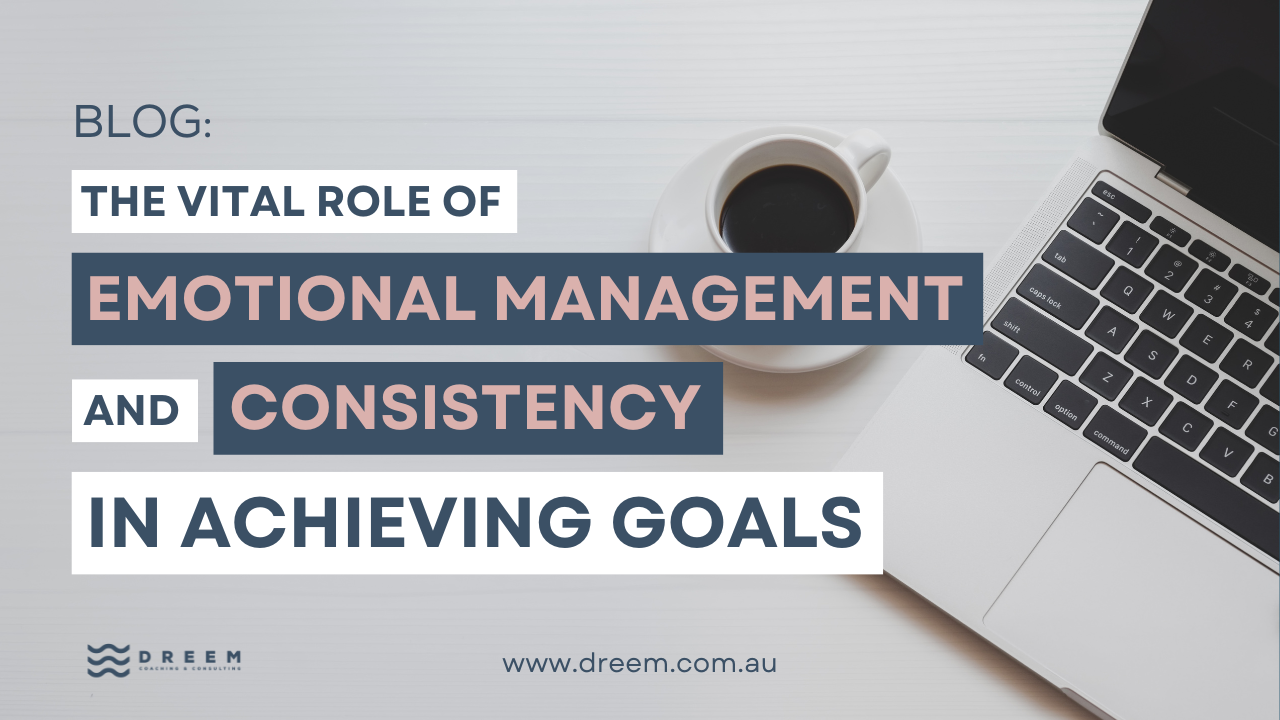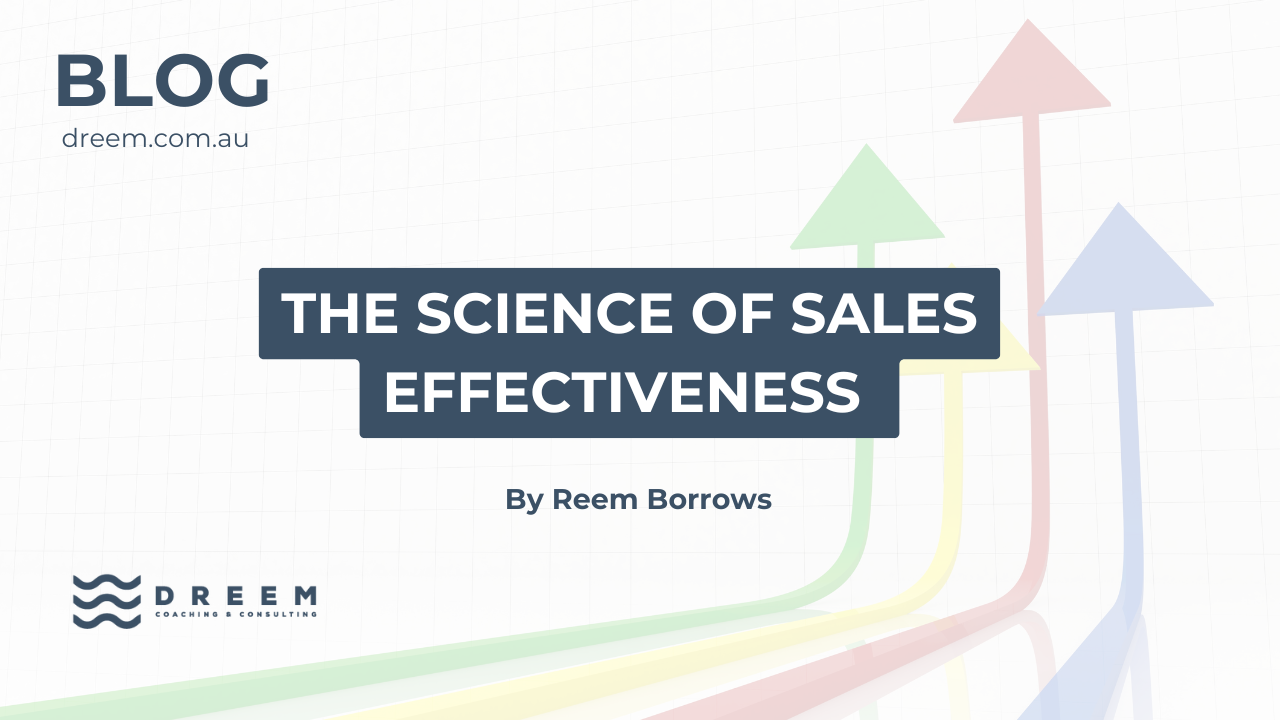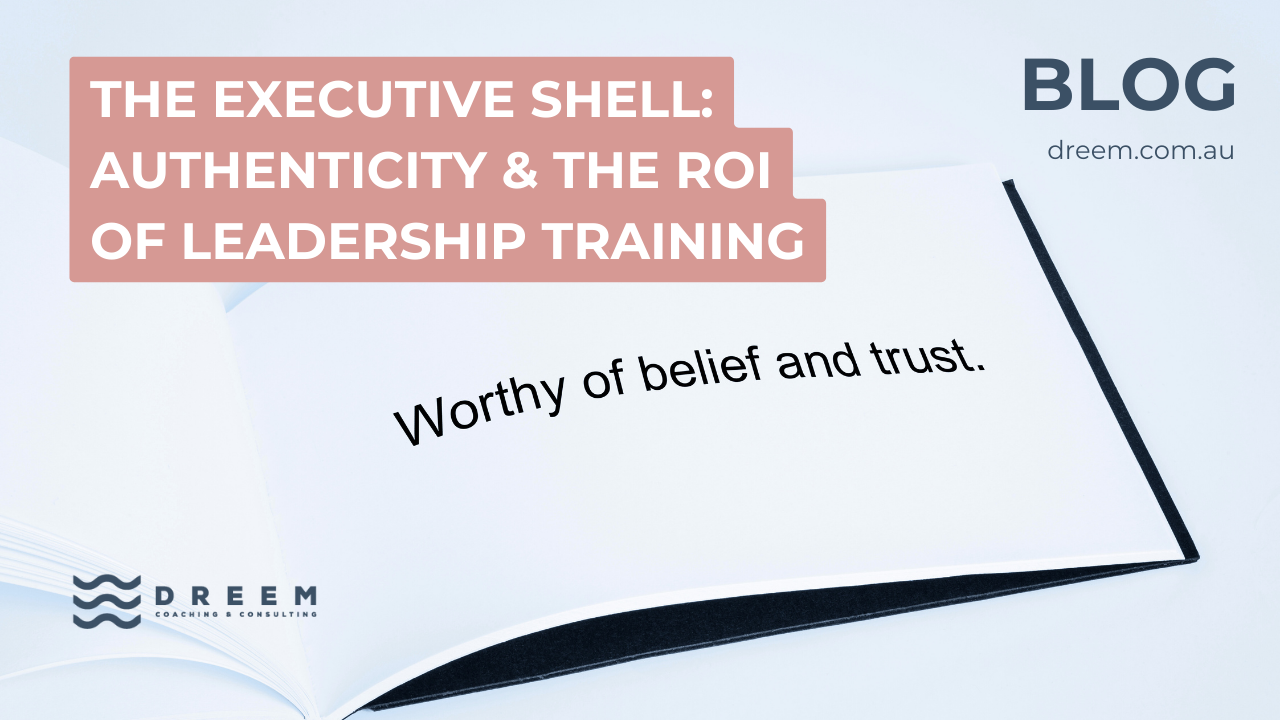
The Vital Role of Emotional Management and Consistency in Achieving Goals
In the pursuit of our dreams and aspirations, we often find ourselves caught up in crafting and planning the perfect strategy and investing a lot of effort. Two elements that are often overlooked, yet essential, in the journey of success are emotional management and consistency.
Emotional management and consistency are two factors that are critical in accomplishing goals in an effective manner. When you combine these factors with a well-defined vision and strong inner motivation, you are placed in the perfect position to achieve lofty goals and combat the setbacks you’ll inevitably face along the way.
Strong motivation isn’t something that’s taught, it’s something that exists within us. If you’re reading this article, there’s a good chance that you’re the type of person who is willing to take risks to achieve something important to you. That’s all that motivation needs to be. Risk-takers are the ones who innovate in their fields by bringing concepts to life.
Mixing this with a well-defined vision, and a sense of clarity, serves as the compass guiding you towards the finish line.
Emotions are what drive your actions. Emotional management equips you with the strength to bounce back from setbacks and unexpected challenges without losing sight of your end goals. Australian author and psychologist Susan David succinctly notes, "Emotions are data, not directives." Embracing this philosophy, emotional management becomes a powerful tool for goal attainment.
How is it that we merge this with consistency? You’re motivated, you have established your vision, the next step is to make a committed decision to pursue your goals and know that your ability to manage your emotions will not let the challenges along the way stop you.
Consistency is the daily commitment to turning your dream into reality. How many times do people around the world find the motivation and vision to begin something with loads of potential, get a few days, weeks, months, or even years in, and throw in the towel because they lose their routine? The answer is almost limitless.
You can probably remember a few times when you’ve done it yourself. Consistency involves taking action every day towards your goal, regardless of emotional fluctuations. It is all about the small, incremental steps that accumulate over time. Think about it like this, if you take a few small steps every day starting now, this time next year you will have completed a marathon.
Emotional management and consistency work hand in hand to support the achievement of goals for individuals and in organisations. Emotional management provides the stability and resilience necessary to navigate the journey effectively, while consistency ensures steady progress towards those goals. Emotional management is when a person is able to use their feelings and emotions as navigating tools to help guide them along the way. It’s when a person is able to respond rather than react to given situations. It’s when a person is able to realise that emotions are there simply to help them align with their goals.
All great leaders have, at one time or another, learned that the resilient traits gained from emotional management, and the reliability gained from consistency makes them a better leader, and puts them in a far better position than their competitors.
I worked with a CEO of a small tech firm, who is one of the most driven people you could ever meet. He is one of the best problem solvers I have ever seen and is one of those people who are just gifted with responding quickly.
The challenge he had was that he was very impatient when it came to results. He was so accustomed to living in a fast-paced, responsive environment, that his concept of consistency was out the window. His emotional management was probably where you would want it to be, as he was so good with his problem solving especially within the industry he is in.
We developed a plan that could drive his business to the next level, setting goals for ten years, five years and then one year. We talked through processes that could be added to his schedule every day (yes, literally every single day) that would help drive him towards the massive goals that deep down, he truly wanted.
In addition to this, it was about removing so much of the non-productive work that he was wasting his time on that could be either delegated or removed from his calendar altogether. An hour here and an hour there wasting time on actions that play no contribution to short-term or long-term goals add up. I call this the gift of time.
When we stop for a second and review how we as leaders spend our time, sometimes it may frighten us to make changes to what’s working. It’s that resistance to change that puts a stop to greatness being chased and potential being fulfilled.
The same goes when it comes to emotional management. Problem-solving requires taking risks as well. The important thing to remember is that every risk you have ever taken has led you to where you are right now, and here you are. You’ve taken plenty of leaps already, trust yourself to continue making the right decisions. Sometimes they might not appear to be the right decisions in retrospect, but every moment is a learning experience.
Accountability is the only other factor that needs to be brought into the equation. My advice is always to find an accountability partner, someone that you regularly catch up with and report on how you are going to accomplish your goals. It could be a friend, colleague, mentor, coach or family member, it doesn’t matter. This is how you can stay consistent and receive advice and feedback on your decision-making.
Once you have found the perfect balance having established your long-term goals, worked out a way to contribute towards them every day, and trusted yourself to make the right decisions, there’s no going back! You’ve booked a one-way ticket to a journey of securing your ambitious goals, and in years to come you’ll be so glad you did.
Connect directly with us
We hate SPAM. We will never sell your information, for any reason.



